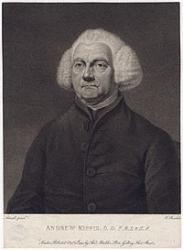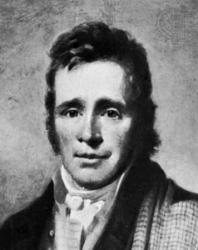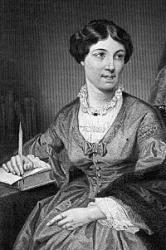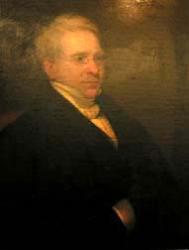Planning worship?
Check out our sister site, ZeteoSearch.org,
for 20+ additional resources related to your search.
- |
User Links
Person Results
‹ Return to hymnal




Export as CSV
Andrew Kippis

1725 - 1795 Hymnal Number: 107 Author of "On thee, each morning, O my God, My waking thoughts attend" in The New York Choralist Kippis, Andrew, D.D., was born at Nottingham, March 28,1725, and educated for the ministry under Dr. Doddridge at Northampton, 1741-46. After a short residence with congregations at Boston and Dorking, he settled in London in 1753, as minister of the Princes Street Chapel, Westminster. There lie remained till his death in 1795, holding rank as the leading Presbyterian minister in the metropolis. For many years he was classical tutor at the Hoxton Academy, and afterwards at the Hackney College. He contributed largely to the Gentleman's Magazine and the Monthly Review, and edited five volumes of a new edition of the Biographia Britannica, a work commenced in 1778, and interrupted by his death on Oct. 8, 1795. His Life of Captain Cook was also published separately, and to his edition of Lardner's Works (1788) a Memoir was prefixed. His degree of D.D. was con¬ferred by the University of Edinburgh in 1767.
He was joint editor of A Collection of Hymns and Psalms for Public and Private Worship, selected and prepared by Andrew Kippis, D.D., &c. ; Abraham Rees, D.D., &c.; Rev. Thomas Jervis, and Rev. Thomas Mor¬gan, LL.D., London, 1795. This collection, commonly known as Kippis's, but sometimes as Kees's, passed through many editions, a Supplement being added in 1807, and was very generally used during the early decades of this century by congregations of Presbyterians and others, then become Unitarian in London and throughout the country [Unitarian Hymnody, § 9]. It contained 690 hymns.
The aim of the editors in their selection was to avoid “everything of a doubtful or disputable kind," and they adopt the language of Dr. Watts in the preface to his Hymns, "The contentious and distinguishing word of sects and parties are excluded." The alterations and omissions to adapt various hymns to the standard of the editors are considerable, though very little compared to what was done by others before and after them. The tone of the collection is somewhat colourless, and it gradually gave place among Unitarians to others which contained fuller and more varied expression of distinctively Christian feeling.
Two hymns by Kippis appear in this Collection.
1. Great God, in vain man's narrow view, The Incomprehensibility of God, which was generally adopted in later Unitarian books, and appears in Martineau's Hymns, 1840 and 1873.
2. How rich thy gifts, Almighty King, National Thanksgiving, which is four stanzas of the hymn, "Say, should we search the globe around," written for the thanksgiving appointed Nov. 29,1759, and appended to his Sermon on that occasion. It was given in full in Pope's Collection, 1760; and the Liverpool Octagon Collection, 1763. In Lindsey's Collection, 1774, five stanzas are given; in other early books only four, as in Kippis. The last two stanzas, somewhat altered, appear anonymously as: "With grateful hearts, with joyful tongues," in the Congregational Hymn Book, 1836, and the New Congregational Hymn Book, 1859.
[Rev. Valentine. D. David, M.A.]
--John Julian, Dictionary of Hymnology (1907)
Andrew Kippis
Richard Burdsall
1735 - 1824 Hymnal Number: 187 Author of "The voice of free grace cries escape" in The New York Choralist Burdsall, Richard, for many years a Wesleyan minister, was born in 1735, and died in 1824. To his Memoirs, published at York, n.d., is appended a hymn beginning, "Now Christ He is risen, the Serpent's head is bruised." The hymn “The voice of free grace cries—'Escape to the mountain,'" begins with stanza ii. of this hymn, but with alterations. In some American hymnals, including Hatfield's Church Hymn Book, 1872, Burdsall's two stanzas are expanded into five, but by whom we cannot say.
--John Julian, Dictionary of Hymnology, Appendix, Part II (1907)
Richard Burdsall
James Joyce
1781 - 1850 Hymnal Number: 51b Author of "Why, on the bending willows hung" in The New York Choralist Joyce, James, M.A., was born at Frome, Somersetshire, Nov. 2, 1781, and was for some years Vicar of Dorking, and died there Oct. 9, 1850. He published A Treatise on Love to God, &c, 1822, The Lays of Truth, a Poem, 1825; and Hymns with Notes, 1849. This last is a small work which he compiled for his parishioners. It is composed of passages of Holy Scripture, Meditations, and 20 Hymns. Of his hymns, the following are in common use:—
1. Disown'd of Heav'n, by man opprest. [On behalf of the Jews.] Tlds appeared in the Christian Observer, Nov., 1809, in 5 stanzas of 4 lines, headed, "Hymn applicable to the present condition of the Jews," and signed "J. J." The form in which it is known to modern collections is, "O why should Israel's sons, once bless'd." This appeared in Bickersteth's Christian Psalmody, 1833, and is widely used. The cento, "Lord, visit Thy forsaken race—vine," in use in America, is Bickersteth's (1833) somewhat altered.
2. High on the bending willows hung. [On behalf of the Jews.] This hymn was given in the December number of the Christian Observer, 1809, in 6 stanzas of 4 lines, as "A second hymn applicable to the present condition of the Jews," and signed “J. J."
3. Israel bewails her freedom gone. [On behalf of the Jews.] This is his “Third Hymn applicable to the present condition of the Jews,” and was given in the Christian Observer, Dec. 1809, with No. 2. It is in 6 stanzas of 4 lines, and signed “J. J.”
--John Julian, Dictionary of Hymnology (1907)
James Joyce
James Hogg

1772 - 1835 Hymnal Number: 197 Author of "Blessed be thy name forever" in The New York Choralist Hogg, James, second son of Robert Hogg, was born in Ettrick Forest, Selkirkshire, January 25, 1772, according to his own account, though the baptismal date is December 9, 1770. He is perhaps best known as the Ettrick Shepherd, and friend of Professor John Wilson and Sir Walter Scott. He died November 21, 1835, on his farm of Altrive in Yarrow. An edition of his Poetical Works was published in 1822 in 4 vols. (Edin., A. Constable) including the best of his poems—- The Queen's Wake, 1813; The Pilgrims of the Sun, 1815; Mador of the Moor, 1816, &c. The two hymns by him which have come into use are, "Blessed be Thy name for ever," and "O Thou that dwellest in the heavens high." A complete edition of his prose and verse was pub. in 2 vols., 1865 (Glas., W. G. Blackie).
1. Lauded be Thy Name for ever. Morning. This is "The Palmer's Morning Hymn" (in 32 lines), which forms a part of Canto iv. of his poem Mador of the Moor, 1816. It is sometimes given in this form, but more frequently as "Blessed be Thy Name for ever" (2 stanzas of 8 lines), as in the Society for Promoting Christian Knowledge Hymns, 1852, and others. It is also altered as "Lord of life, the Guard and Giver," as in Mercer, &c.
2. 0 Thou that dwellest in the heavens high. Midnight. This was given,together with music, as "A Cameronian's Midnight Hymn," in 8 stanzas of 4 lines, in his tale of The Brownie of Bodsbeck, 1818. Although found in several collections its use is not so great as that of No. 1. [Rev. James Mearns, M.A.]
-- John Julian, Dictionary of Hymnology
James Hogg
Alexander Balfour
1767 - 1829 Hymnal Number: 66c Author of "Go messenger of peace and love" in The New York Choralist Balfour, Alexander, was born of poor parents at Monikie, Forfarshire, 1767. For some time he was engaged in business pursuits, but through lack of success therein he entered the publishing house of Messrs. Blackwood, of Edinburgh, as a clerk, in 1818. He died in 1829. He published several works in prose and verse. His hymn, "Go, messenger of peace and love," is noted on p. 430, ii.
--John Julian, Dictionary of Hymnology, Appendix, Part II (1907)
Alexander Balfour
Charles Philpot
1759 - 1823 Hymnal Number: 103b Author of "Again, from calm and sweet repose, I rise to hail" in The New York Choralist Rev. Charles Philpot (1759-1823)
Charles Philpot of Leicestershire, entered Emmanuel College Cambridge as a pensioner in 1775 (B.A. 1780, M.A. 1787) where he twice won the Seatonian Prize (1790, 1791). Philpot was ordained in 1793 and was Rector of Ripple, Kent (1793-1823) and Vicar of St. Margaret-at-Cliffe (1813-23).
--www.spenserians.cath.vt.edu
Charles Philpot
Harriet Martineau

1802 - 1876 Hymnal Number: 110 Author of "Sweet is the prayer, whose holy stream" in The New York Choralist Martineau, Harriet, was born at Norwich, June 12, 1802, and died at Ambleside, June 27, 1876. Best known as the writer of Illustrations of Political Economy, Retrospect of Western Travel; two novels, Deerbrook and The Hour and the Man; Eastern Life, Past and Present; a History of the Thirty Years’ Peace, and various other works. Her first publication was a book of Devotional Exercises, with hymns appended to each Exercise, and her hymns also belong to what she speaks of in the Autobiography as her "Unitarian" period. Five of them appeared in A Collection of Hymns for Christian Worship, printed in 1831 for the congregation of Eustace Street, Dublin, and edited by her brother, the Rev. James Martineau.
1. All men are equal in their birth. Human Equality.
2. Lord Jesus! come; for here. Jesus desired. Sometimes given as(1) "Come, Jesus, come, for here"; (2) and "Thy kingdom come, for here."
3. The floods of grief have spread around. In Affliction.
4. What hope was thine, O Christ! when grace. Peace.
5. When Samuel heard, in still midnight . Samuel.
The Rev. J. R. Beard's Collection 1837, contains 1, 2, 4 and 5, and:—
6. The sun had set, the infant slept. Gethsemane. The Rev. W. J. Fox's Hymns and Anthems, 1841, contains No. 1, and
7. Beneath this starry arch. Progress . [Rev. Valentine D. Davis, B.A.]
-- John Julian, Dictionary of Hymnology (1907)
Harriet Martineau
W. E. Miller
1766 - 1839 Hymnal Number: 241 Author of "Our souls by [in] love together knit [drawn] [joined]" in The New York Choralist
W. E. Miller
Nathan S. S. Beman

1785 - 1871 Person Name: N. S. S. Beman Hymnal Number: 145 Author of "Jesus, I come to thee, A sinner doomed to die" in The New York Choralist Beman, Nathan Sidney Smith, D.D., was born at Canaan, Columbia Co., N. Y., Nov. 27, 1785; and graduated at Middleburg College, Vermont, 1807. He was a Congregational Pastor at Portland, Maine, 1810-12; Minister in Georgia, 1812-22; and Pastor of the First Presbyterian Church, Troy, N. Y., 1823-63. He died at Carbondale, Illinois, Aug. 8, 1871. He edited Sacred Lyrics, Troy, 1832, and an enlarged collection under the same title, 1841. The latter was adopted by the New School Presbyterian General Assembly as the Church Psalmist, 1847. Dr. Beman is known in hymnody mainly through his three hymns which are in common use:—
1. Jesus, we bow before Thy throne. Missions. This appeared in Dr. Hastings's Spiritual Songs, 1831, No. 174, in 4 stanzas of 4 lines.
2. Jesus, I come to Thee. Submission to Christ.
3. Hark, the judgment trumpet sounding. Judgment.
The last two were first published in his Sacred Lyrics, 1832, and all are given in Dr. Hatfield's Church Hymn Book, 1872. Dr. Beman's hymns are unknown to English collections. [Rev. F. M. Bird, M.A.]
-- John Julian, Dictionary of Hymnology (1907)
Nathan S. S. Beman
J. Newton Brown
1803 - 1868 Person Name: J. N. Brown Hymnal Number: 70 Author of "Go, spirit of the sainted dead" in The New York Choralist Brown, John Newton, D.D., was born at New London, Connecticut, June 29, 1803, and graduated at Madison University, 1823. From 1838 to 1845 he was Professor of Theology at New Hampton, New Hampshire, and from 1845-1849 pastor at Lexington, Virginia. He died in 1868. Dr. Brown was some time editor of the Baptist Publication Society, the Christian Chronicle, and the National Baptist. His works include Encyclopaedia of Religious Knowledge, 1831; Memorials of Baptist Martyrs, 1834; Poems, 1840. His hymn:—
Go, spirit of the tainted dead, appeared in The Psalmist (Revs. B. Stow and S. F. Smith), 1843, No. 1100, and thence has passed into other Baptist collections. [Rev. F. M. Bird, M.A.]
-- John Julian, Dictionary of Hymnology (1907)
J. Newton Brown


 My Starred Hymns
My Starred Hymns


